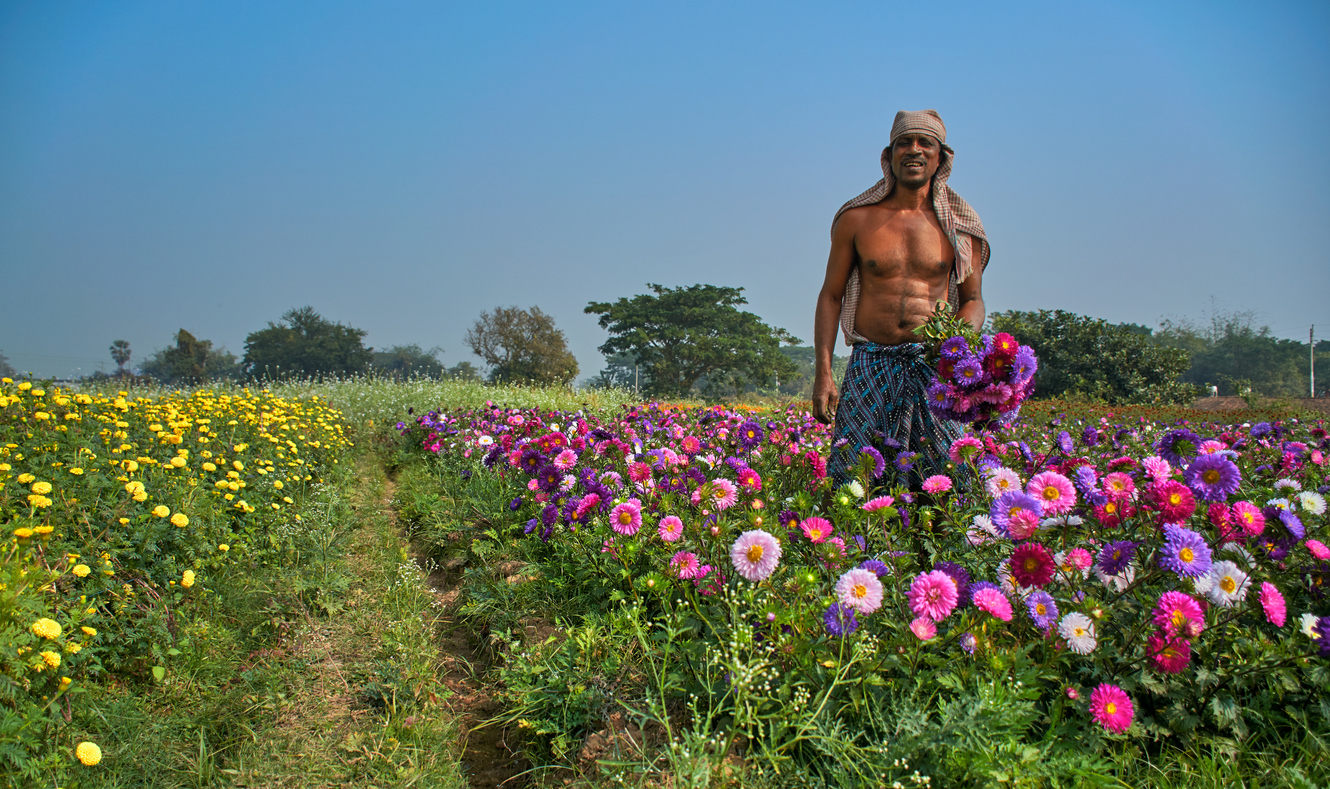
We'll resume work, but where’s the clientele? ask Bengal’s rural workers

In Khirai, West Bengal’s ‘valley of flowers,’ situated around 90 km off Kolkata, Manas Jana was not very enthused by the state government’s decision to relax restrictions on transportation of all farm produce, including flowers.
Marigolds in his vast swathe of bright and turmeric yellow field were swaying in the wind, waiting to be plucked and sold. But Jana was not in a hurry to harvest them. “Even if I take them to the market, there would hardly be any buyer, now that even temples have shut doors,” he said.
Nityananda Pain, another flower cultivator from Sheoraphuli in Hooghly district shared the same concern.
Getting a vehicle to carry his produce to Mullick Ghat, a 130-year-old flower market, the largest in Kolkata, and one of the biggest in Asia, is another big problem, Pain added. The flower market is just about 30 km from Sheoraphuli.
Respite or despair?
To minimise the impact of the lockdown on the rural economy, the West Bengal government from Wednesday relaxed restrictions on non-essential farm produce such as flowers and betel leaves.
The beedi (country-made cigarette) industry, which provides direct and indirect employment to over 15 lakh people, mainly in the state’s Murshidabad and Malda districts, too have been given the go ahead to engage workers in rolling the tobacco flakes in a tendu (Diospyrox melanoxylon) leaf.
The state government is contemplating similar “respites” for other sectors too.
The government’s move comes a day after it constituted an eight-member “global advisory board” headed by economist Abhijit Vinayak Banerjee to counsel chief minister Mamata Banerjee on COVID-19 response policy.
Related News: In West Bengal, Mamta does a flip-flop of COVID-19 numbers
The other members of the board include epidemiologist Dr Swarup Sarkar, also a former director of communicable diseases at the World Health Organisation; Dr Thomas Frieden, former director of Centers for Disease Control and Prevention (CDC) in the United States; Jishnu Das, former lead economist of World Bank’s Development Research Group and JVR Prasada Rao, former health secretary, government of India among others.
The government also ordered the opening of all vegetable mandis (markets), though major markets were already operating as vegetables were kept outside the purview of the lockdown.
Earlier, the state government allowed sweet shops to open from 12 noon to 4pm to minimise loss incurred by the state’s dairy farmers in the wake of the lockdown.
Workers keep fingers crossed
Farmers and beedi workers are however keeping their fingers crossed on how much the government’s move would actually benefit them.
Even a section of officials in the state agriculture department admit the limited-relaxation announced by the state government for farm produce might not be of much help to the farmers, unless other logistics are taken care of and demands are created.
“Due to the lockdown, temples have closed down, reception, marriages and other functions where flowers are needed for decoration too have been stopped. So, where is the demand for flowers?” said Jana.
The state annually produces around 77,246 metric tonne (MT) of loose flowers and 28,973 MT of cut flowers in over 29,000 hectares of land dedicated to flower cultivation, according to an estimate of the state’s Food Processing and Horticulture Development Corporation Ltd.
Related news: COVID-19 restrictions lead to acute shortage of blood in West Bengal
Flower cultivation in the state is mostly done in both East and West Midnapore districts, Hooghly and South 24 Parganas. The two Midnapore districts that account for nearly half of Bengal’s flower supply, alone had been incurring a loss of over ₹5 lakh a day because of the lockdown, said Bengal Floriculturists and Flower Sellers’ Association.
The association had urged the government for at least partial exemptions on the sale of flowers.
“We know due to the lockdown there is no much demand for flowers. But at the same time there are not many options either,” said a member of the association. He said the farmers, in any case, would have to pluck the flowers, otherwise the tree would die.
The betel leaf farmers were also sceptical about the demand with paan shops remaining closed.
Similarly, Nasima Begum, a beedi worker in Murshidabad’s Jangipur too was not very sure that the government’s decision would revive her livelihood.
“Yes, we have heard from a local panchayat member that the government has now given us permission to resume our works keeping a safe distance from each other. But, why will the beedi factories take our products, when they will not be able to sell them in the market,” she said.
Officials of the agriculture department said to protect life and livelihood, the chief minister would probably make more announcements on Thursday (April 9) after her meeting with various chambers of commerce, trade bodies, representatives of medium and small-scale industries, hotel and tourism sectors among others.
Meanwhile, Jana, Pain, Nasima Begum and millions of other farmers and unorganised workers in the state wait with bated breath for another day to pass.


